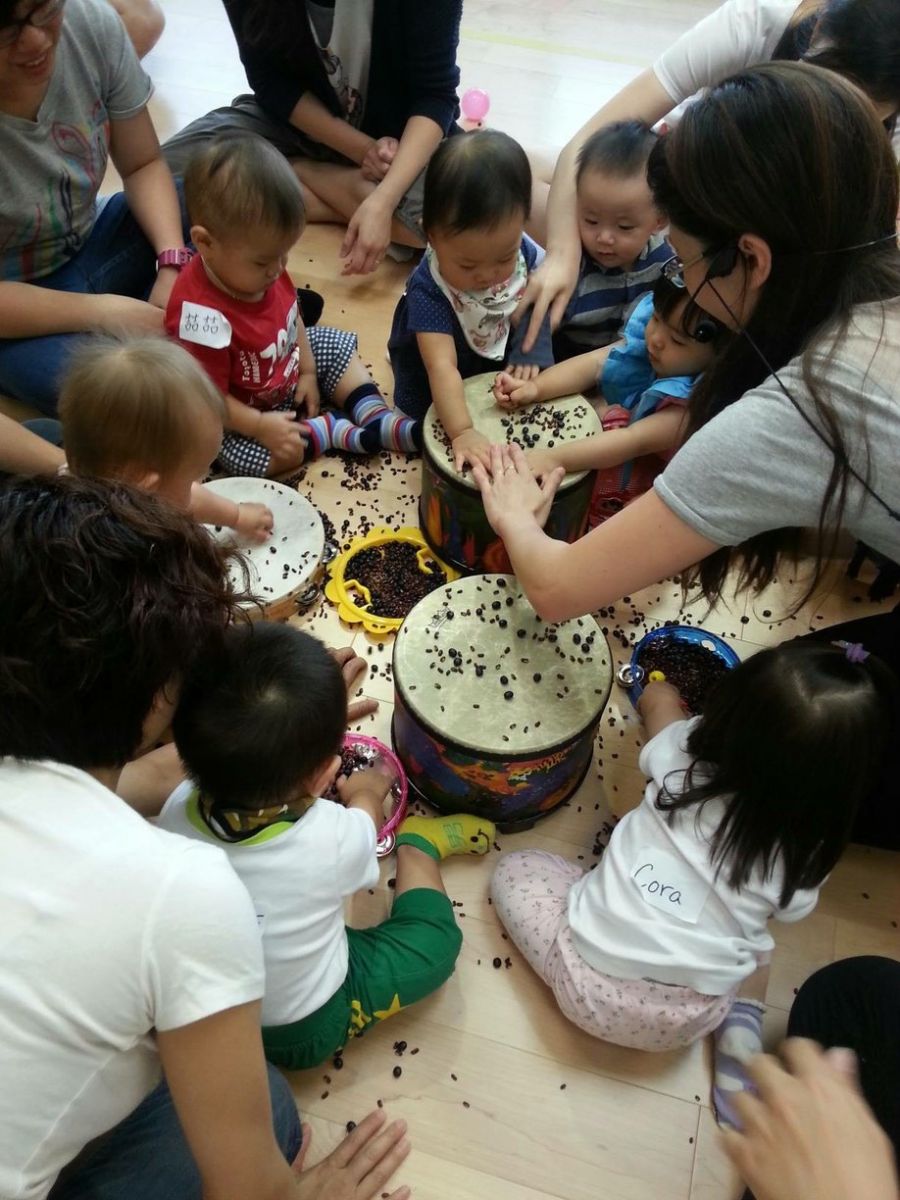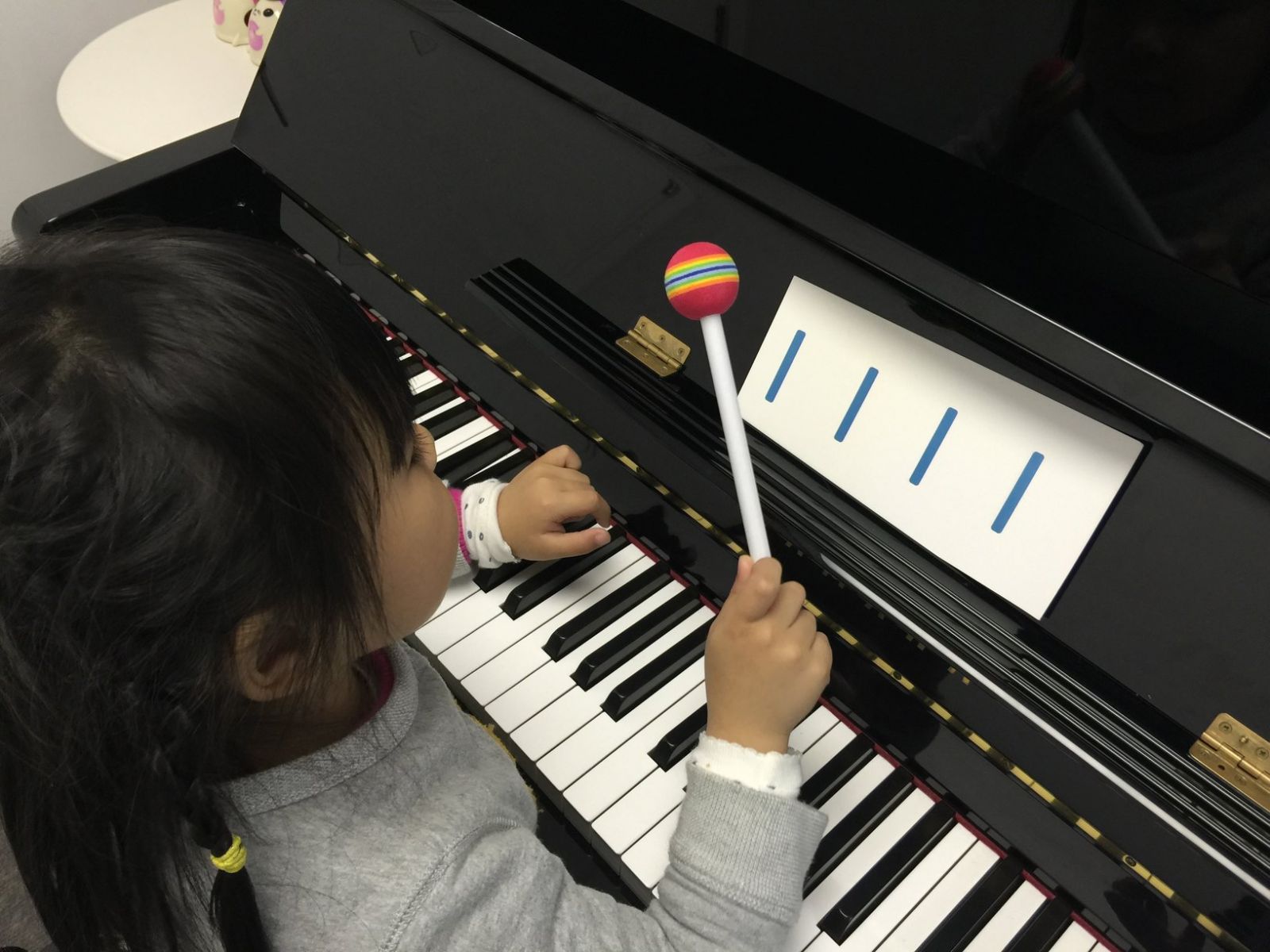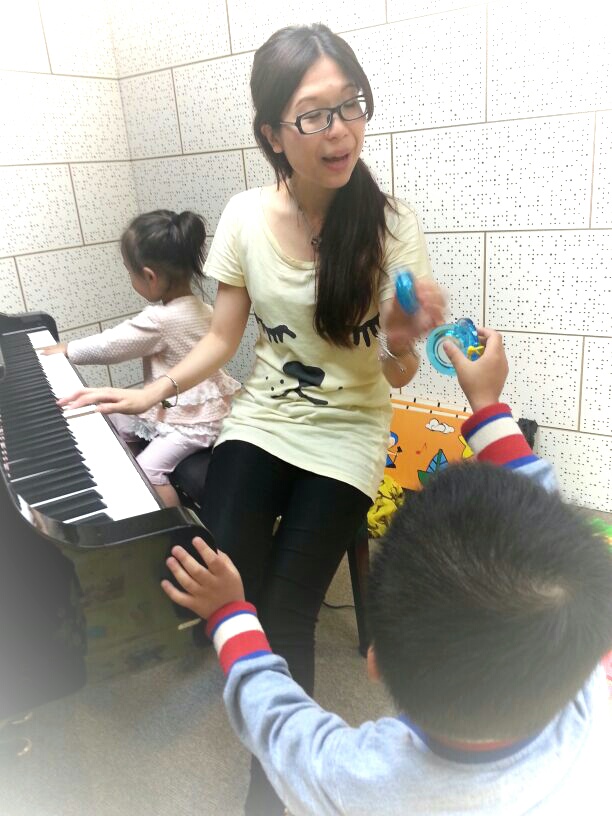Playgroup
 More Than Playing: Playgroups in Hong Kong that Do Real Good to Children
More Than Playing: Playgroups in Hong Kong that Do Real Good to Children
Green Apple Arts & Music Centre
“Playgroup” is an all-time trending keyword on local and international mothers’ forums nowadays. Today’s parents are convinced that the sooner their infants or toddlers receive proper nurturing in a  playgroup, the better their future development will be. There is some truth in this, given that we are talking education from a qualified, devoted playgroup center with a genuine passion to help children grow. Unfortunately, there are also many run-of-the-mill playgroups in the market that are more suitably described as businesses than schools. Many of them do not have a trained staff team or a sound teaching approach that can really benefit and positively influence children during their highly fragile and moldable early childhood stage.
playgroup, the better their future development will be. There is some truth in this, given that we are talking education from a qualified, devoted playgroup center with a genuine passion to help children grow. Unfortunately, there are also many run-of-the-mill playgroups in the market that are more suitably described as businesses than schools. Many of them do not have a trained staff team or a sound teaching approach that can really benefit and positively influence children during their highly fragile and moldable early childhood stage.
In light of this, we at Education-Ladder.com have gone for a hunt for quality playgroups in town that your infants or toddlers can safely rely upon. They are playgroups with a clear educational philosophy, a promising and trained staff team, a good teaching and learning approach, and good track records. Today we visited one of them, Green Apple Arts & Music Centre, and talked to the Music Director, Joanna Sum, and playgroup teacher April Lee.
Green Apple’s main philosophy is to help kids develop holistically and comprehensively. “We value kid’s artistry as much as their physical well-being, muscle coordination, emotion health and self-control,” says Joanna, “We believe that children can grow in all these areas at one setting. Our playgroups are designed with children’s comprehensive developmental growth in mind.”
The center’s music playgroups are divided into six stages targeting at infants (6-11 months), toddlers (12-17 months), 18 to 24-month-olds, 2 to 3-year-olds, 3 to 3.5 year-olds, and 3.5 to 5-year-olds respectively. The objective of these playgroups, as Joanna stresses, is not to push kids to attain a rigid set of developmental tasks or lesson goals that are prescribed for their levels. Instead, much attention is paid to individual’s abilities and speed of learning. If necessary, some kids may be recommended to receive some private one-on-one sessions before being assigned to a group.
(12-17 months), 18 to 24-month-olds, 2 to 3-year-olds, 3 to 3.5 year-olds, and 3.5 to 5-year-olds respectively. The objective of these playgroups, as Joanna stresses, is not to push kids to attain a rigid set of developmental tasks or lesson goals that are prescribed for their levels. Instead, much attention is paid to individual’s abilities and speed of learning. If necessary, some kids may be recommended to receive some private one-on-one sessions before being assigned to a group.
“Some parents are very impatient. They want to give up when there are no apparent effects on their  children after half a year or a year,” says Joanna, “But we should be patient with kids and not give up on them easily, because each kid’s development is different. Some are quick learners while some are slower ones.” Joanna cites an example of a kid who only started greeting the instructor after having attended the playgroup for half a year. “But even during that first half year, we know he was absorbing. When his parents played a piece of music that we played in the playgroup, he would stop and look. It shows that even though he wasn’t responding actively in class, he was learning,” says Joanna.
children after half a year or a year,” says Joanna, “But we should be patient with kids and not give up on them easily, because each kid’s development is different. Some are quick learners while some are slower ones.” Joanna cites an example of a kid who only started greeting the instructor after having attended the playgroup for half a year. “But even during that first half year, we know he was absorbing. When his parents played a piece of music that we played in the playgroup, he would stop and look. It shows that even though he wasn’t responding actively in class, he was learning,” says Joanna.
When asked about the biggest expectation on her students, Janice says that she wants the students “to be happy”. “When I learnt music, I felt very stressed because I was pushed [by parents and teachers],” says Janice, “But nowadays we have discovered more effective and enjoyable ways to nurture music talents in young kids. Therefore I want the kids to feel that learning music is enjoyable and fun.”
April goes on to explain how fun playgroup activities are transferable to music education. She gives an example that in her playgroup classes, she teaches kids to make heavy, light, big or small dance movements according to the dynamics and style of music being played. The skills that students acquire in the process are transferable to piano playing, which is basically “dancing of fingers”. As a result, children would be more capable at expressing different styles and dynamics of music.
2248 views
Naps play an important role in helping babies hang onto what they learn. Now, a new study suggests naptime could have a similar effect on language learning in preschoolers. Researchers stud
Read MoreThe application deadline for the Free Quality Kindergarten Education Scheme is 15 September. Under this initiative, a teacher-student ratio of 1:11 will be required. At least four kindergartens mo
Read MoreHarrow International School Hong Kong is the first international boarding and day school in Hong Kong. It opened in September 2012 and now has a combined roll of 1182 students from Early Years to Y13
Read MoreAmerican School Hong Kong (ASHK) is a non-profit, college preparatory international school in Hong Kong offering a holistic American education taught by qualified North American teachers who inspire,
Read MoreGraded Examination in Spoken English (GESE) Our fun and tailor made Trinity Preparation Classes designed for students wanting to enroll in the Graded Examination is Spoken English (GESE). &nb
Read More6 weeks of exciting activities to entertain and educate 4th July - 12th August 2016 Are your little ones bookworms, or are they always on the go? Do they love animals, or is travelling their thi
Read More





